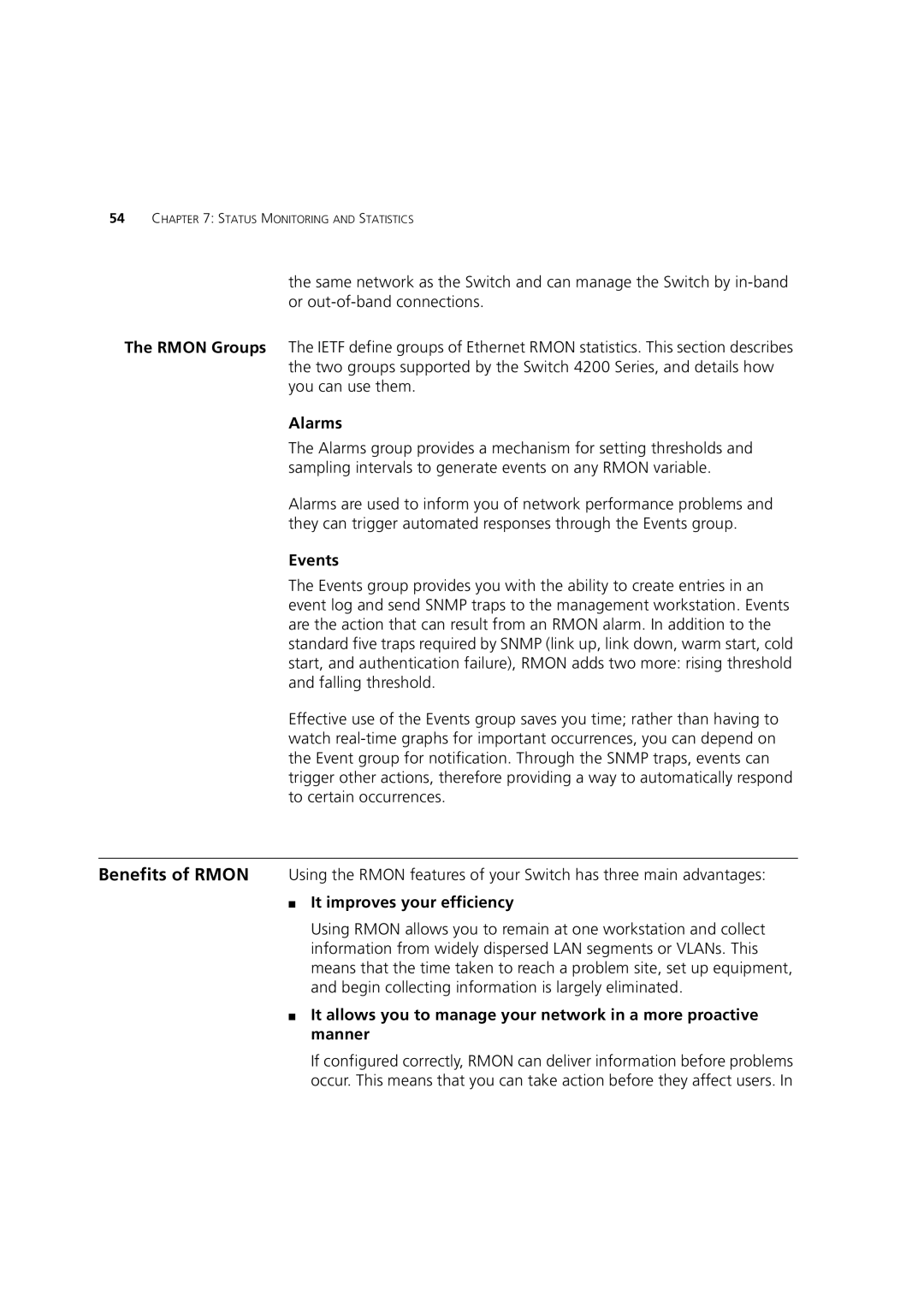54CHAPTER 7: STATUS MONITORING AND STATISTICS
the same network as the Switch and can manage the Switch by
The RMON Groups The IETF define groups of Ethernet RMON statistics. This section describes the two groups supported by the Switch 4200 Series, and details how you can use them.
Alarms
The Alarms group provides a mechanism for setting thresholds and sampling intervals to generate events on any RMON variable.
Alarms are used to inform you of network performance problems and they can trigger automated responses through the Events group.
Events
The Events group provides you with the ability to create entries in an event log and send SNMP traps to the management workstation. Events are the action that can result from an RMON alarm. In addition to the standard five traps required by SNMP (link up, link down, warm start, cold start, and authentication failure), RMON adds two more: rising threshold and falling threshold.
Effective use of the Events group saves you time; rather than having to watch
Benefits of RMON Using the RMON features of your Switch has three main advantages:
■It improves your efficiency
Using RMON allows you to remain at one workstation and collect information from widely dispersed LAN segments or VLANs. This means that the time taken to reach a problem site, set up equipment, and begin collecting information is largely eliminated.
■It allows you to manage your network in a more proactive manner
If configured correctly, RMON can deliver information before problems occur. This means that you can take action before they affect users. In
